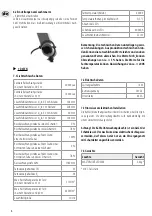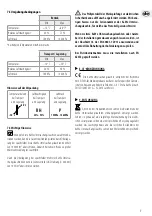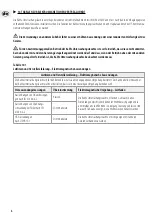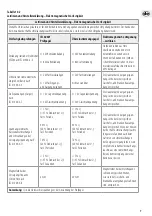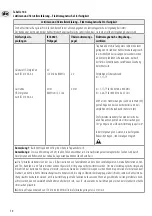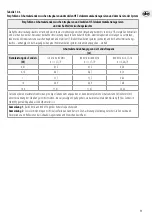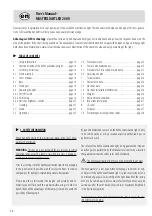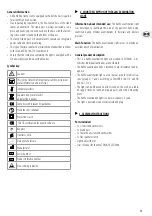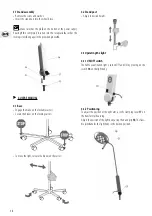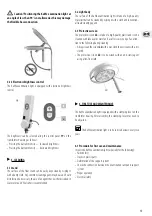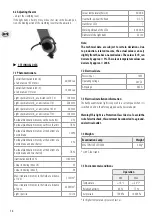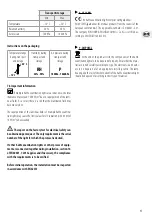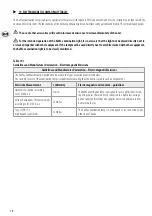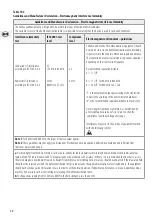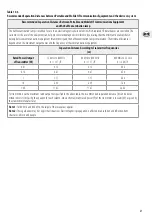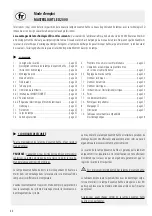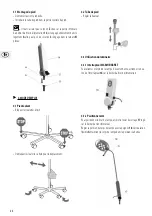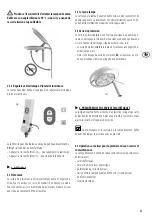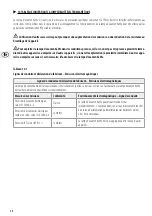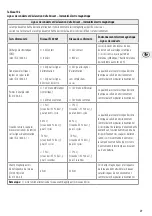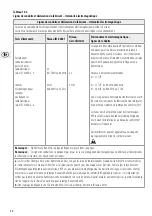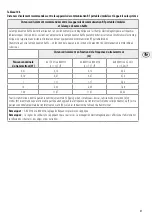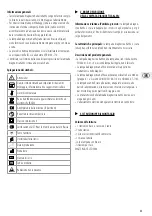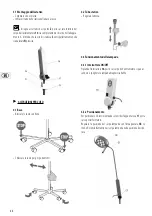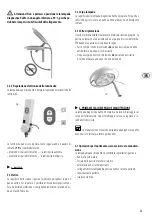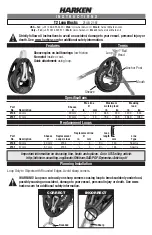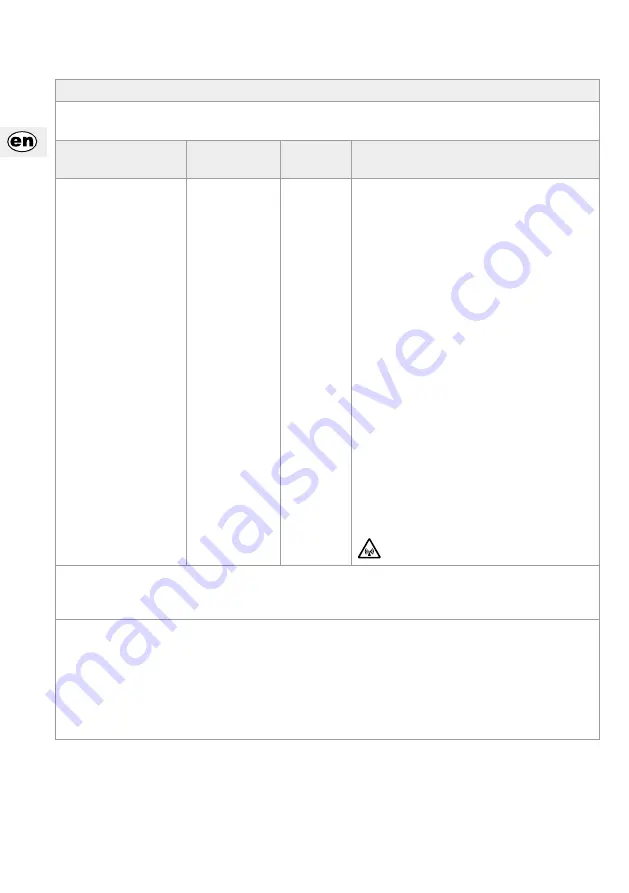
20
Table 10.4
Guidelines and Manufacturer Declaration – Electromagnetic Interference Immunity
Guidelines and Manufacturer Declaration – Electromagnetic Interference Immunity
The KaWe examination lamp is designed to be used in the types of environments listed below.
The customer or user of the KaWe examination lamp is responsible for ensuring that this device is used in such an environment.
Interference immunity
test
IEC 60601-test
level
Compliance
level
Electromagnetic environment – guidelines
Conducted HF-interference
according to IEC 61000-4-6
Radiated HF-interference
according to IEC 61000-4-3
3 V
150 kHz to 80 MHz
3 V/m
80 MHz to 2.5 GHz
3 V
3 V/m
Portable and mobile HF communications equipment should
be used no closer to the KaWe examination lamp (including
its power cords) than the recommended separation distance.
The separation distance is calculated using various equations
depending on the transmission frequency.
Recommended separation distance:
d = 1.17√P
d = 1.17√P for 80 MHz to 800 MHz
d = 2.34√P for 800 MHz to 2.5 GHz
“P” is the maximum output power rating of the transmitter
in watts (W) according to the transmitter manufacturer.
“d” is the recommended separation distance in meters (m).
Field strengths from fixed transmitters, as determined by
an electromagnetic survey of site “a” are less than the
compliance level in each frequency range.
Interference may occur in the vicinity of equipment marked
with the following symbol.
Note 1:
For 80 MHz and 800 MHz, the larger of the two values applies.
Note 2:
These guidelines may not apply in all situations. Electromagnetic propagation is affected by absorption and reflection from
structures, objects and people.
a:
Field strengths from fixed transmitters, such as base stations for radio (cellular/cordless) telephones and land mobile radios, amateur
radio, AM and FM radio broadcast and TV broadcast cannot be predicted with accuracy in theory. It is recommended that in order to assess
the electromagnetic environment caused by fixed HF transmitters, an electromagnetic site survey should be conducted. If the measured field
strength at the location at which the KaWe examination lamp is used exceeds the applicable compliance level stated above, the equipment
should be checked at each of its locations of use in order to verify normal operation. If abnormal performance is observed, additional meas-
ures may be necessary, such as reorienting or relocating the KaWe examination lamp.
b:
For frequencies ranging from 150 kHz to 80 MHz, the field strength is less than 3 V/m.

